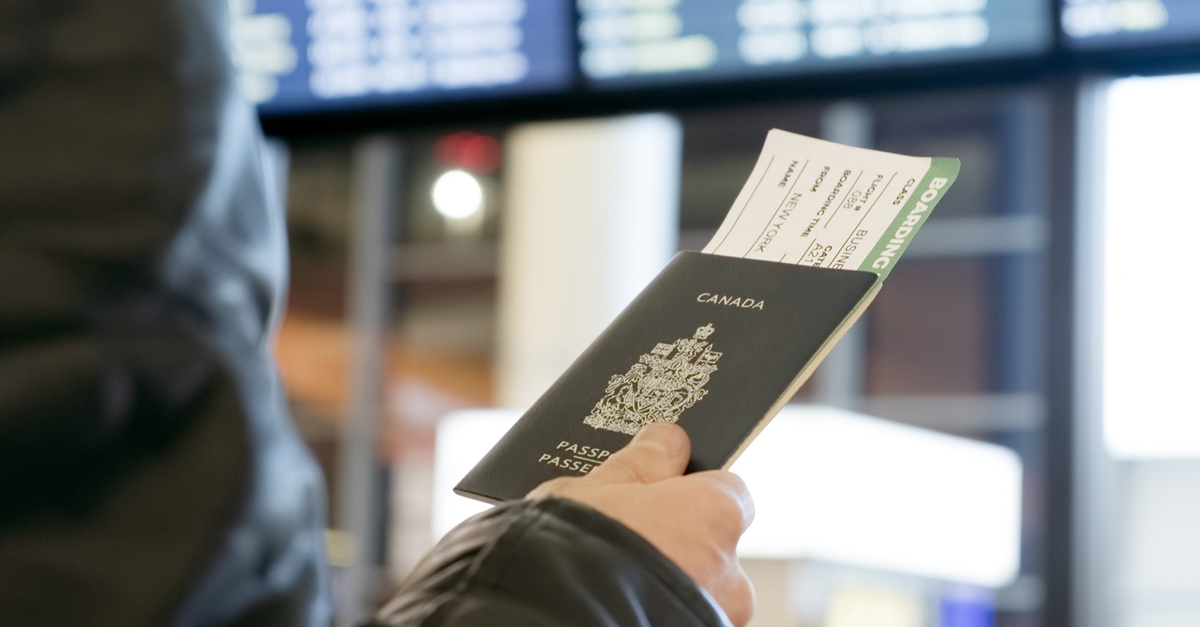
I often see clients who want to file for bankruptcy or a consumer proposal to eliminate their debt but worry about how filing will impact their ability to travel for work, vacation, or to visit family abroad. While unscrupulous collection agents will make threats that travel is prohibited or that you can be arrested at the border if you are in a bankruptcy, these claims are entirely untrue. In fact, there is nothing in the Bankruptcy and Insolvency Act restricting travel during a bankruptcy.
Table of Contents
Bankruptcy and travel: When do you need to be in Canada?
During your bankruptcy or consumer proposal filing, there are times where you will need to be in Canada to complete certain bankruptcy duties including attending meetings. These meetings include:
- Credit Counselling Sessions – You must successfully complete two credit counselling sessions in order to be discharged from bankruptcy or complete consumer proposal. In these sessions, you will learn about useful life skills like money management, budgeting, and general financial management. These two sessions can be scheduled around your travel plans within specified periods.
- Meeting of Creditors – While a meeting of creditors is very rare in a personal bankruptcy, it is more common in a consumer proposal. In this meeting, your creditors or the Official Receiver may request this meeting after you have filed, and you must attend. Your Trustee will be asked to prepare a report about your assets and liabilities and creditors may ask you questions about your financial affairs. You would receive ample notice before this meeting takes place (roughly 3 weeks), so you would be able to arrange travel plans accordingly.
- Examination – Another event that may take place during your bankruptcy filing is an examination under oath. Again, this is a rare occurrence but one that mandates your physical attendance. The Official Receiver may send you a notice to appear and answer questions about the causes of your bankruptcy, conduct, disposition of property, and the nature of your debts. An examination occurs rarely and often the bankrupt is selected at random.
- Discharge Hearing – While most bankruptcies have an automatic bankruptcy discharge at the end of the 9-month period, there are certain cases in which the bankrupt is not discharged automatically: when mandatory duties are not completed, when personal tax debt is $200,000 or more and represents 75% or more of your total debts, and when it’s your third bankruptcy filing. In these cases, you would have to appear in bankruptcy court to explain your situation in order to be discharged.
In all cases, you would be notified well in advance of mandatory events so that you can plan any extended travels accordingly. You should also notify your Trustee if you are planning to leave Canada for more than three weeks. In general, if you are just travelling for work or vacation, your Trustee does not need to know.
Can I move outside of Ontario or Outside of Canada while in a bankruptcy?
Yes, you may move outside of the province or country while in a bankruptcy or consumer proposal as long as you can complete your duties. In addition to the mandatory meetings we mentioned earlier for which you would need to be physically present, there are also other required duties that you need to complete while you are in a filing in order to be successfully discharged.
These duties are:
- Making all required payments in a proposal or bankruptcy, including surplus income
- Reporting your monthly income and expenses and any changes to your Trustee
As long as you are completing all of your required duties and you appear for mandatory meetings, where you live during your bankruptcy or proposal filing will not matter.
Does bankruptcy affect a passport application?
No. Filing for bankruptcy does not have any impact on a passport application. The Bankruptcy & Insolvency Act does not prohibit application or renewal for a passport and there is nothing in the application process which even requires you to disclose that you are bankrupt.
Can I file bankruptcy from outside of Canada?
To file for bankruptcy or a consumer proposal, the process begins with a consultation with a Licensed Insolvency Trustee to review all your options for debt relief. The assessment must be completed in-person. Therefore, if you live abroad, you would have to travel back to Canada to meet with a Trustee. You would also need to be present to sign necessary paperwork to get your filing started.
Another important point to understand is that it is very hard for unsecured creditors in Canada to successfully pursue you while you are living outside of the country. If you are considering Canadian bankruptcy while living abroad, there must be a compelling reason to file. Such a reason may be that you have to return to Canada for a year on a temporary work term and would need to deal with your debts. We explain in greater detail the process for filing bankruptcy while living abroad.
If you are experiencing financial trouble but are concerned about debt relief options impeding your ability to travel, don’t worry. A bankruptcy or consumer proposal will not have any negative impact on your routine. In fact, at Hoyes Michalos, our Trustees will do everything they can to accommodate your schedule. Contact a Licensed Insolvency Trustee today to review your options for free.





